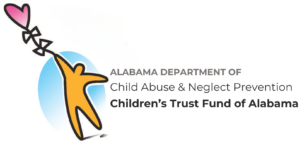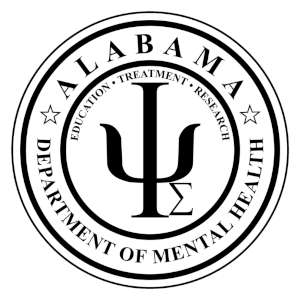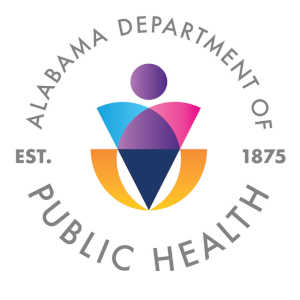Parenting a teenager can feel like a bit like sailing. When your teen is happily engaged in family, school, or church activities, the day is sunny and the water is calm. Throw in splashes of teenage drama, attitude, and angst, and you watch the sky darken and the water get choppy. Still, you can confidently navigate the squall. But when you suspect that your teen is using drugs or alcohol, it can feel like a tidal wave is about to capsize the boat.

Those stormy seas are more common than you might think. One in five eighth graders report having taken drugs and one in four has used alcohol. Half of this year’s graduating class of high school seniors will have used drugs and close to two out of three will have consumed alcohol. While experimentation is common, recreational use can quickly become substance abuse and following that, addiction. Thankfully, there are lifelines available for families struggling to right the ship and sail toward sobriety.
Give Your Kid a Compass
An adolescent who has a plan and clear boundaries is better equipped to resist the temptations of drugs and alcohol. As a parent, you can initiate the conversations that enable your child to move through these uncharted waters. Discussions can include:
- Basic information about different types of alcohol and drugs. You want to be your child’s source of trusted information about substances.
- Your family history of substance use and abuse. An age-appropriate conversation can serve as a cautionary tale.
- Consequences should your teen use drugs or alcohol. Understanding the stakes ahead of time can support sound choices.
- That driving under the influence or riding with someone under the influence is never acceptable. Consider pledging to pick up your teen anytime and anywhere, and promising to refrain from asking questions until the next day.
- Practicing what to say or do. Have your teen problem solve their course of action if they’re at a party where a friend is using an illegal substance. Create a code word that your teen can text if they need to leave. You get the code word and call them with a family “emergency.” They have an excuse that allows them to escape without peer pressure or judgment.
Latrice Dailey is an Adolescent Counselor at Beacon Recovery, a UAB Medicine-affiliated outpatient substance abuse treatment program for adults and teens ages 13 to 18. “When you help your teen explore boundaries, they’re prepared,” she said. “They won’t have to figure out everything right in the moment they’re in a high-risk situation.”
Catch the Wave Before it Crashes
If you suspect that your teenager is using drugs or alcohol – or if you’re confronted with evidence that they’re using – it can be tempting to react swiftly, strongly, and punitively. While it may be counterintuitive, the more effective course of action is to momentarily step out of your parental role and meet them not with accusations, but with empathy and compassion.
If your teen exhibits heightened secrecy – one of the hallmarks of drug use – open the lines of communication. Dailey suggests always taking the route of “asking one more question.” Tell them that you’re concerned, that you’re feeling shut out of their lives and that you want to be involved. Ask them what is truthfully going on. And then be prepared to accept their answer. “Remove the option of being offended or angered by what they tell you,” said Dailey. “Instead, put yourself in their place.”
When you’re able to empathize, you can understand why they feel drugs are their companion and why substances have helped them cope. “If I’m able to hear how drugs have benefitted them, I can suggest alternatives,” said Dailey. “I can’t do that with fear tactics.”
You may find that your teen uses drugs out of boredom, out of a need for validation, in order to be cool, or in order to fit in. If you meet them with empathy and concern, you’re in a position to help them find other ways to gain affirmation and self-esteem.
Intervention Provides a Lifeline
If you feel as though the boat is taking on water, it may be time to consult with a professional. You can have a conversation with a substance abuse treatment provider and the provider can assess your teenager. You won’t be present during the assessment – after all, your child is more likely to be honest when you’re out of earshot – but the counselor can uncover what is prompting their drug or alcohol use. Typically, they’ll gather the teen’s entire substance abuse history. This includes what they’re using, how long they’ve been using, and how frequently they’re using. The provider will also explore untreated mental health issues, such as anxiety or depression, as well as traumatic experiences. “We’re able to understand the significance of the problem, which can then lead to early intervention and treatment,” said Dailey.
Beacon Recovery utilizes group cognitive behavioral therapy and sometimes supplements group work with individual sessions to address unresolved emotional trauma. The course of treatment at Beacon Recovery depends on whether the diagnosis is substance abuse or substance dependency.
Substance abuse is characterized by a teen neglecting school commitments, experiencing social problems, and jeopardizing their health and well-being. In the case of substance abuse, adolescents typically enter a 90-day outpatient treatment program that meets for 2-1/2 hours each week.
Substance dependency is marked by needing to use the substance in order to function on a daily basis, experiencing withdrawal symptoms, and building up a tolerance to the drug. Those who have a dependency diagnosis participate in Beacon Recovery’s six-month intensive outpatient program, which consists of meeting three days each week for 2-1/2 hours each day, along with individual monthly sessions.
According to Dailey, parents play a critical role in righting the ship and enabling their teen to sail toward sobriety. “The best weapon in substance abuse prevention and intervention is building a teen’s capacity for self-affirmation, self-awareness, and self-love,” she said. “Kids are not always going to make the right decisions because they’re still figuring out life, but their identity is more than those poor choices.”
If you suspect your child has a substance abuse issue, call Beacon Recovery at (205) 917-3733, extension 103 to schedule an appointment for an assessment.









